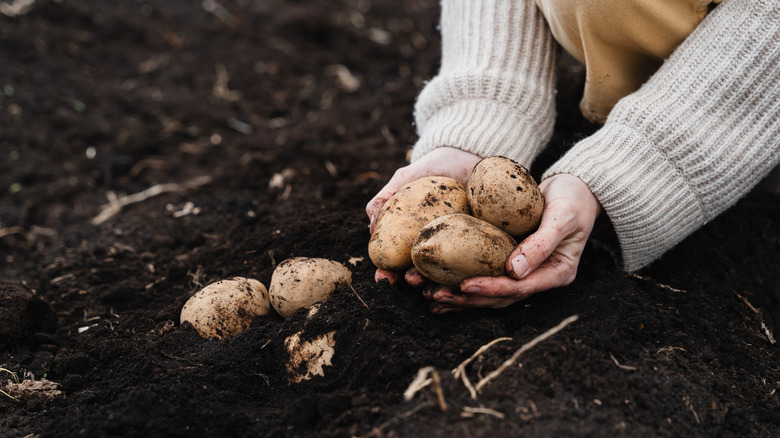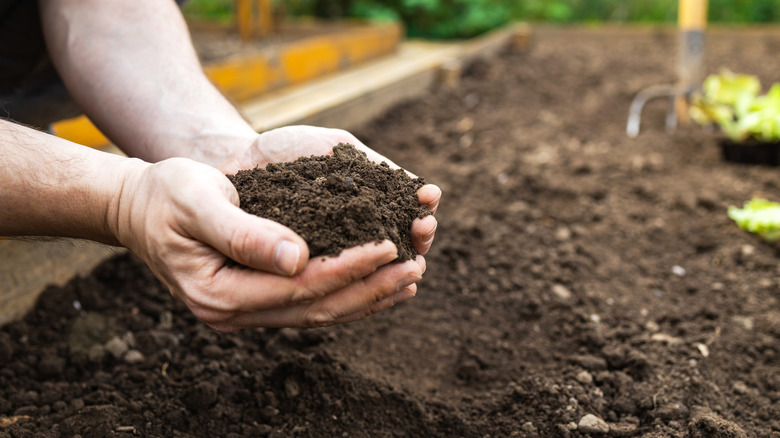Does Your Garden Need Black Soil? Here's What To Know
For healthy, happy, and thriving crops, your soil needs to be at its best. The health of a soil can make or break a growing season, and without good soil, even the most experienced gardeners can have a miserable time. There are different types of soil, and one that is purported to be the best for growing crops is black soil. Black soil refers to a specific type of soil that is extensively farmed. It is fertile and productive, and rich in organic carbon. There are around 725 million hectares of black soil worldwide, with Russia having the largest area. However, black soil can also be found in the mid-latitudes of the U.S.
However, with less than three percent of the world's population living in a black soil region, this soil is unlikely to be found in your garden. Cotton, wheat, sugarcane, peanuts, corn, potatoes, and citrus fruits are just some of the agricultural crops that thrive in black soil. Despite not needing it in your home garden, it can be useful to reflect on what makes this soil so great for crops and how we can emulate it in our own yards.
How to recreate black soil in your own garden
Black soil is great for a whole range of crops, with a significant amount of the world's oilseed, cereals, and tuber crops being grown in black soils. It is rich in minerals, such as calcium carbonate, magnesium, and potash. As it is highly fertile, we can learn from black soil and make amendments to our garden soil to help our crops perform their best.
Black soils are rich in organic matter, which contributes to their high fertility and helps the soil retain moisture. To recreate black soil, you should amend your garden with organic matter once a year. Animal manure, composted plant materials, hay, or straw can all be spread on your soil or mixed within it to improve its fertility. It is useful to avoid tilling, as doing so prevents soil microbes and larger animals, such as earthworms, from secreting beneficial nutrients into the soil. Planting cover crops in the fall and winter can also promote soil fertility and enhance the overall health of your soil.
Creating healthy soil doesn't just happen overnight. It can take a while for you to recreate black soil in your garden. However, by working on promoting fertility and exploring ways you can naturally enrich garden soil, your crops will soon thrive year after year.

